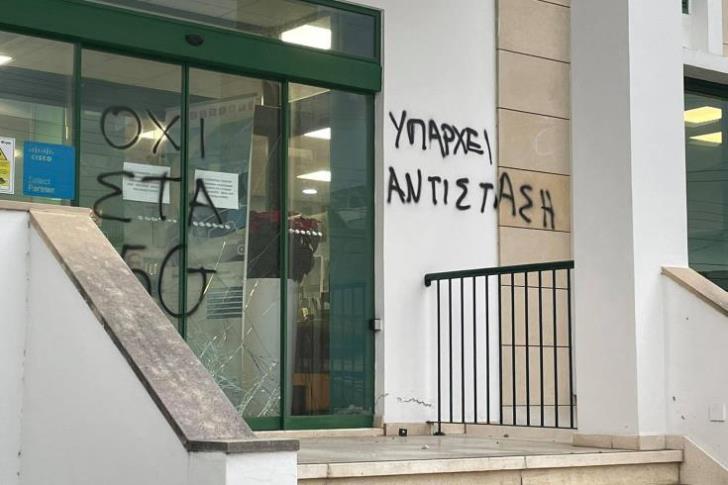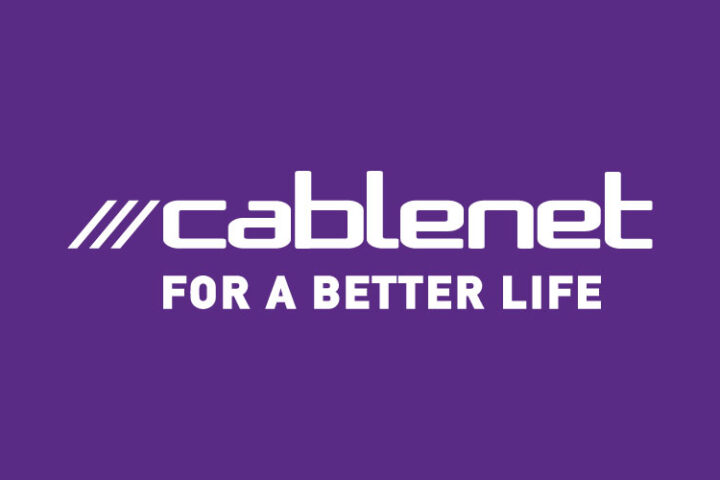A bomb explosion causing damage to a Cyprus Telecommunications Authority (Cyta) branch in Ayia Fyla, Limassol is believed to be linked to 5G conspiracy theories.
Police on Monday said the explosive device, placed at the entrance of the branch, appears to be linked with the controversy over 5G broadband networks.
The perpetrators of the crime left Graffiti on the walls of the building which read “No to 5G” and “There is Resistance Against 5G”.
Police are looking into whether the ‘5G’ incident at Cyta’s Ayia Fyla branch is connected to a Molotov cocktail attack on a Hellenic Bank branch in the same village.
And an attempt to burn down the Christmas tree at the Grigori Afxentiou Square on Anexartisias Street in central Limassol.
A private security guard posted at the Christmas tree reported seeing five men in black hoods throwing Molotov cocktails at the tree.
This is not the first time that telecommunication facilities have been targeted by 5G objectors.
Antennas and telephone masts have been torched in Cyprus while several demonstrations have been organised against 5G over health fears also linking the rollout with COVID-19 conspiracies.
A demonstration in late October in Limassol against coronavirus restrictions, corruption, and the rollout of a 5G network turned violent with four officers and a firefighter injured.
Concerns over health risks connected with the 5G systems have also been expressed by local authorities with the Ormidia community council in September declaring the village a 5G free zone – effectively attempting to ban the technology in its area.
Meanwhile, Cyprus telecom providers are gearing up for the auction of 5G broadband frequencies taking place on 17 December, after three postponements in as many months.
According to EU directives, Cyprus must issue 5G broadband licenses by the end of the year and Cyta is one of the bidders, along with Primetel, Epic and Cablenet.
Licences are granted between the frequency spectrum available on the 700 MHz and 3.6 GHz bandwidths and valid for 20 years.
Radiofrequency licensing for 5G networks is an obligation for all EU member states to reach the ‘Gigabit Society’ goal set by the European Commission.
According to the ‘Gigabit Society,’ all European households should have access to 100 Mbps connections by 2025 with the possibility to upgrade networks to reach much higher speeds.
Meeting this goal will help Europeans and businesses reap the full benefits of digitalization, enhancing EU competitiveness in the global market, accelerating digital transformation, and promoting green growth.










